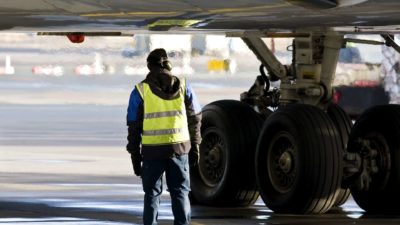The Qantas Airways Ltd (ASX: QAN) share price is down a little over 1% at time of writing. Shares are currently trading for $6.59 apiece.
Despite today's retrace, shares in the S&P/ASX 200 Index (ASX: XJO) airline stock remain up a healthy 21% since this time last year.
With the Qantas share price now back to pre-COVID levels, can the airline keep handing investors more gains?
Can the flying kangaroo deliver more gains?
Time will tell, but I see more positives than negatives ahead for the Qantas share price.
Covering off the negatives first, inflation may be coming down. But inflation remains well above central bank target ranges across much of the developed world.
That means we can likely expect at least one more interest rate hike from the RBA, the US Fed, and other leading central banks.
Higher rates and sticky inflation have the tendency to eat away at consumers' discretionary spending stockpiles. If it becomes a decision on whether to pay the mortgage or sh
resurgent travel demand, driven in part by pent-up demand following years of border closures.
That helped Qantas post some very strong half-year results recently.
ell out for air travel, we could see the resurgent post-pandemic demand for travel ebb, pressuring the Qantas share price.
On the plus side, we do have that resurgent travel demand, driven in part by pent-up demand following years of border closures.
That helped Qantas post some very strong half-year results recently.
Highlights included flipping the prior corresponding period's $1.3 billion loss in underlying net profit before tax to a $1.4 billion gain. That was driven by a whopping 222% year-on-year increase in revenue, which reached $9.9 billion over the six months.
The balance sheet was also greatly improved, with net debt slashed by $2.4 billion.
As for the travel outlook, soaring travel inflation has yet to dent demand.
According to the Australian Bureau of Statistics (ABS), as of March domestic holiday prices had increased 25% year on year. International travel faced an even bigger hit, with prices up 38%.
Yet, as The Australian Financial Review reports, Sydney travel agent Melissa Devlin says the travel sector is robust.
According to Devlin, who primarily handles international flights:
We're pumping because Australians love to travel and there was that pent-up demand after being stuck at home for two and a half years. And they definitely have more money to spend. We're doing more business class or premium economy than we ever have.
Devlin added that she is "a little concerned it may slow down".
Which brings us to a final reason why the Qantas share price could well fly higher from here.
Falling fuel costs.
This time last year Brent crude oil was trading for US$105 per barrel. Brent topped out above US$123 per barrel last June. Today that same barrel is trading for US$78 per barrel.
With jet fuel representing some 40% of Qantas costs, lower fuel prices could result in some sizeable profit increases, which the market may not yet be pricing in.
As for Goldman Sachs, the broker has a buy rating on the airline with an $8.30 target on the Qantas share price. That is some 26% above the current price.
Qantas share price snapshot
So far in 2023, the Qantas share price has gained 11%.








